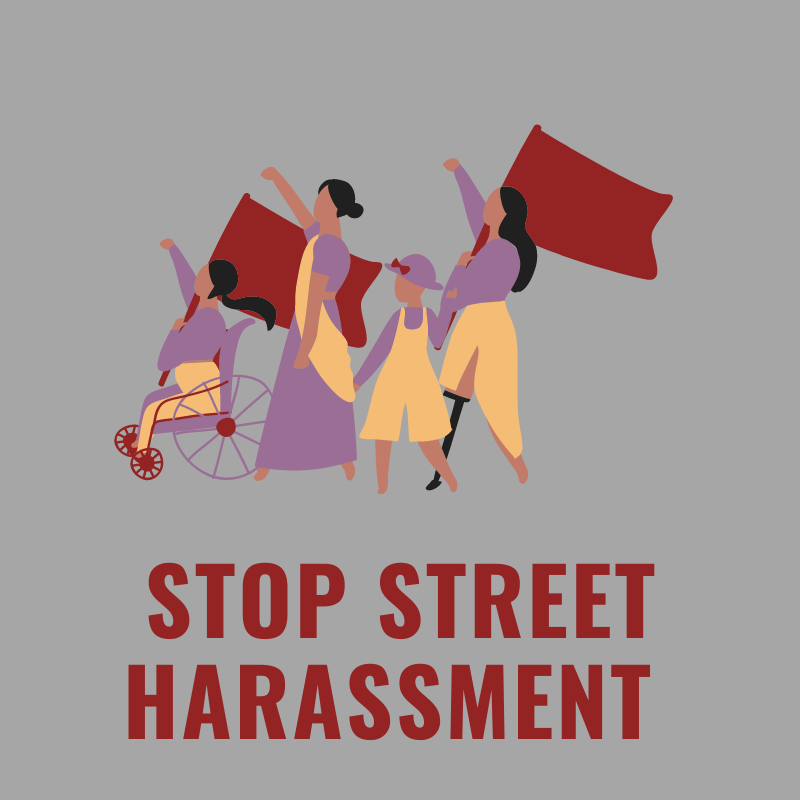We’ve created 31 Actions for Gender Justice to raise awareness, spark conversations and take action that transforms gender and power relations, and the structures, norms and values that underpin them. Every day for the month of March we will highlight an action that advances gender equity and justice for International Women’s Day (IWD).
Stop street harassment
31 Actions for Gender Justice: Day 21
Street harassment is unwelcome or unwanted verbal, non-verbal, physical or visual conduct based on gender or of a sexual nature which occurs with the purpose or effect of violating the dignity of a person. It can also be based on race, disability, class, gender identity, or other social identities, and serves to remind marginalized populations of our vulnerability to assault in public space.
It’s a form of sexualized violence that includes whistling, unwanted comments, following someone, sexual assault, groping, homophobic and transphobic slurs, racist remarks, stalking and other forms of violence, mostly by strangers in public spaces like public transit, malls, parks, crosswalks and on the sidewalk. It can happen anywhere, during the day or night, or even when there are people around.
Women are standing in their power and taking action to end street harassment by speaking out, recording incidents and warning others. Last week, a Vancouver woman recorded a video of a man following her at close distance for 40 minutes in broad daylight. She shared the video to raise awareness about safety issues and harassment in the streets.
In an interview with CTV News Vancouver, Angela Marie MacDougal, BWSS Executive Director, talks about this incident:
“I think in this circumstance, we saw a woman being very resourceful, both by creating evidence, but also creating a witness. It is not to be taken lightly, at all.
The stats tell us, and we’ve had some research in Canada within the last 10 years, where at least 80% of women and girls have experienced being followed by a stranger. It is an ongoing reminder of just how much gender-based violence is happening.”
According to an international survey in 2015, 88% of women surveyed in Canada said they experienced harassment before the age of 17, and 79% reported being followed by a man or a group of men that made them feel unsafe.1
By speaking out and raising awareness to stop street harassment, women are resisting misogynistic behaviours in the streets which is forcing the conversation about this issue.
To learn more about safety, visit our website: https://www.bwss.org/support/
Or call our crisis line for immediate emotional support and practical assistance:
BWSS Crisis & Intake Line at 604-687-1867 or toll free at 1-855-687-1868
About car share and public transit safety:
- Car Share Safety https://www.bwss.org/car-share-safety/
- #TransitTuesday, Sexual Harassment on Public Transportation is a Problem We Must Solve https://www.bwss.org/sexual-harassment-on-public-transportation-is-a-problem-we-must-solve/
- How can we improve public transit safety for women? https://www.bwss.org/how-can-we-improve-public-transit-safety-for-women/
1 Cornell International Survey on Street Harassment, 2014. Retrieved from: https://www.ihollaback.org/cornell-international-survey-on-street-harassment/#ca





